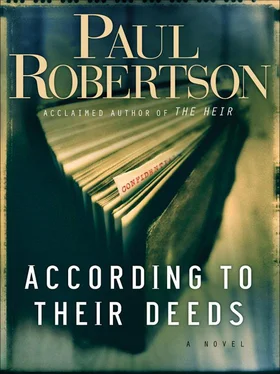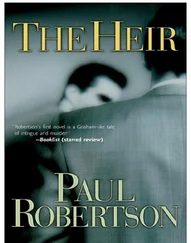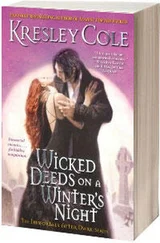Paul Robertson - According to Their Deeds
Здесь есть возможность читать онлайн «Paul Robertson - According to Their Deeds» весь текст электронной книги совершенно бесплатно (целиком полную версию без сокращений). В некоторых случаях можно слушать аудио, скачать через торрент в формате fb2 и присутствует краткое содержание. Жанр: Криминальный детектив, на английском языке. Описание произведения, (предисловие) а так же отзывы посетителей доступны на портале библиотеки ЛибКат.
- Название:According to Their Deeds
- Автор:
- Жанр:
- Год:неизвестен
- ISBN:нет данных
- Рейтинг книги:4 / 5. Голосов: 1
-
Избранное:Добавить в избранное
- Отзывы:
-
Ваша оценка:
- 80
- 1
- 2
- 3
- 4
- 5
According to Their Deeds: краткое содержание, описание и аннотация
Предлагаем к чтению аннотацию, описание, краткое содержание или предисловие (зависит от того, что написал сам автор книги «According to Their Deeds»). Если вы не нашли необходимую информацию о книге — напишите в комментариях, мы постараемся отыскать её.
According to Their Deeds — читать онлайн бесплатно полную книгу (весь текст) целиком
Ниже представлен текст книги, разбитый по страницам. Система сохранения места последней прочитанной страницы, позволяет с удобством читать онлайн бесплатно книгу «According to Their Deeds», без необходимости каждый раз заново искать на чём Вы остановились. Поставьте закладку, и сможете в любой момент перейти на страницу, на которой закончили чтение.
Интервал:
Закладка:
Charles opened the cover to the title inside. The Divine Comedy
Dante Alighieri
Transl. by Henry Wadsworth Longfellow
And then to the next page. The Inferno: Canto I
And then to the first lines. Midway upon the journey of our life
I found myself within a forest dark,
For the straightforward pathway had been lost.
Ah me! how hard a thing it is to say
What was this forest savage, rough, and stern,
Which in the very thought renews the fear.
AFTERNOON
“It’s two o’clock. Shall we close the door?” Dorothy asked from above.
“Go ahead,” Charles said. “But keep an eye out for Norman.”
“Will you be down there much longer?”
“A little while more. Morgan managed to get quite a few books.”
“Anything special?”
“Mostly standards. The Dante is nice. It’ll take some repair.”
“I can come to-oh, Charles, Norman Highberg is here.”
“Norman! How are you?”
“I’m okay.” Norman peered at the showroom walls. A large cardboard box was nestled in his two hands. “You sure have a lot of books.”
“I do. That’s what I sell. Thank you so much for coming.”
“Gasoline costs more than I’m making on this.”
“It isn’t that bad. Maybe I can sell you something at a discount.”
“Like what?”
“A book?”
“I don’t do books.”
“I don’t do chess sets either. I’m not buying it to sell it, just to use it. You could just have a book for yourself.”
Norman was very perplexed. “I don’t get it. How do you use a book?”
“You open it and look at the words.”
“Oh, you mean read it.”
“That’s exactly it,” Charles said. “Anyway. I suppose that’s the set?”
He looked down at the box. “This is it.”
“Let’s crack it open,” Charles said. “Here, on the counter.”
Norman set the box on the counter. He scrunched his glasses up his nose and pushed his hair out of his eyes.
“I need a haircut,” he said. “You know a good place? The place I go, it’s no good. I’ve been going for years.”
“Why do you go there?” Dorothy asked.
“I need to get my hair cut.”
Charles said, “Is it somebody you’re related to?”
“Me?” Norman said. “No.”
“I just wondered,” Charles said.
“He’s related to my wife. It’s her cousin. He’s no good.” He had the flaps of the box open and he started taking out individual wrapped packets. “You’ve got to wrap each one.”
“So, we’ll unwrap each one.” He handed two to Dorothy and peeled the paper off another.
It was a knight. Norman paused to peer over his glasses.
“Mahogany. See the grain? The base is teak. The white pieces are chestnut and cherry. You can’t get chestnut anymore. Now look at this. How they’re joined? Perfect, right? And see, it’s not glued. The pin goes through the base.” He held the base and pulled the figure. There was no movement between them.
“Why wouldn’t it just be glued?” Charles asked.
“Because that’s too easy. This is show-off work. And talk about showing off? Here’s the board.”
His motions were pure grace as he took the paper off, and the board deserved every flourish. Every square was framed by the four woods inlaid, one on each side, creating an illusion of three-dimensional bevels. The outer frame was both intricate and elegant, a dense cascade of overlapping, variably sized squares like the froth of a wave.
“It’s dazzling,” Dorothy said. “It looks like a Klimt.”
“It is Austrian, 1890s,” Charles said. “Or maybe it’s Sigmund Freud’s psyche.”
“I don’t know about that stuff,” Norman said. “But you can tell it’s the real thing.”
“What will we do with it, Charles?” Dorothy said.
“I want to have it here in the showroom,” he said. “You wouldn’t have some kind of table, would you, Norman?”
“I don’t do furniture. There’s a zillion places to buy tables.”
“Just in Alexandria alone. Would there have been a stand for it?”
“Sure,” Norman said. “Who knows where it is now, in Tokyo or someplace if it didn’t get blown up in some war.”
“What would it have looked like?”
“It would have been a square top, about four inches on each side, bigger than the board with a recess to fit it in and a big heavy column leg with some kind of flared bottom.”
“Derek just kept the board on his desk, to one side. He’d move it to the center to play.”
Norman shook his head. “I never figured that game out. I mean, who came up with it? Checkers, that makes sense. Everything moves the same way.”
“If you appreciate that people are different, Norman, you appreciate that chess pieces are different.”
“If everyone were the same, it’d be a lot simpler.”
“Yes, it would.”
“You played that game with him,” Norman asked.
“Yes,” Charles said. “Eight or ten times over the years.”
“So who won?”
“I did.”
“How many times?”
“Every time.”
“You never told me that!” Dorothy said.
“That’s why he kept playing me,” Charles said. “You sold the set to Derek originally, didn’t you?” he asked Norman.
“Yeah. First thing I sold him. Ten years ago at least.”
“Where did you get it?”
“Germany. It was part of a bunch of loot left over from the Nazis. They got everything they could back to whoever owned it before the war, and then they auctioned the rest for the Jewish Reparation Fund. Good cause.”
“And it had all been stolen by the Nazis,” Charles said. “There must have been quite a variety.”
“Some of them had good taste. It was everything-art, furniture, jewelry-everything. And that was just the stuff the government recovered after the war. A lot of it went underground.”
“What do you know about that underground market, Norman? The market for stolen art.”
“A little. I’ve got to, you know? In my business you’ve got to.”
Dorothy had unwrapped the white queen, and Charles took it from her. There was no play in the pin holding the chestnut figure to the cherry base. “Where do you think Derek’s stolen pieces are now?”
“Three places,” Norman said. “In a basement somewhere, you know, or buried or something. Or in some rich guy’s parlor that bought the whole bag. Or else at the bottom of the Potomac. That’s where they’d be if the guy that stole them was smart.”
“How would the guy that stole them find the rich guy that wanted to buy them?” Charles said.
“How do any of those guys find each other?” Norman said. “But they do. They always do.”
“Could you find one?”
“Why should I want to? Except I could use the money, and that would be no taxes on the sale. You know how much I pay in taxes? What’s it like in Virginia? It must be lower than D.C.”
“I suppose,” Charles said. “Here, Norman, look at this queen. What do you think?”
Norman looked close, then very close. “Let me see the other queen.”
They found it, and Norman looked close again. “It doesn’t exactly match the other pieces. The carving, you know? But the queens match each other. And the colors don’t match exact either. But it’s chestnut, and who can get chestnut? It must be from the same workshop.” He looked very, very close. “I don’t know. Maybe it was a different carver?”
“I think Lucy Bastien, Derek’s wife, mentioned something about the queens. I hadn’t ever looked close.”
“Then she’s got a good eye. It’s good stuff. So maybe they don’t match exactly, but you’ve got to have an eye to see it, and they’re maybe the best work of the whole set.”
Читать дальшеИнтервал:
Закладка:
Похожие книги на «According to Their Deeds»
Представляем Вашему вниманию похожие книги на «According to Their Deeds» списком для выбора. Мы отобрали схожую по названию и смыслу литературу в надежде предоставить читателям больше вариантов отыскать новые, интересные, ещё непрочитанные произведения.
Обсуждение, отзывы о книге «According to Their Deeds» и просто собственные мнения читателей. Оставьте ваши комментарии, напишите, что Вы думаете о произведении, его смысле или главных героях. Укажите что конкретно понравилось, а что нет, и почему Вы так считаете.











